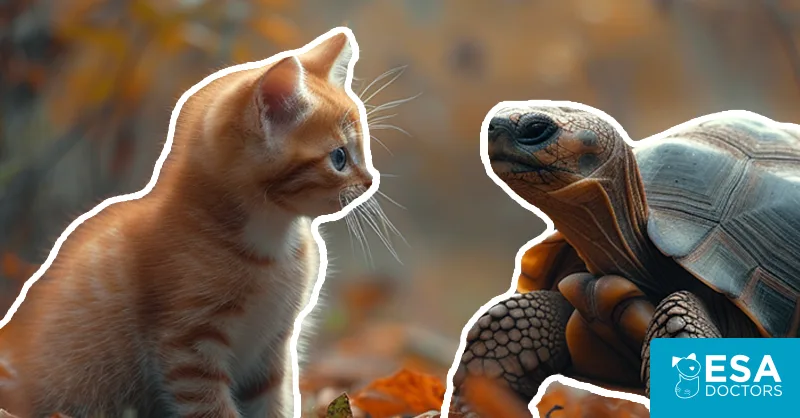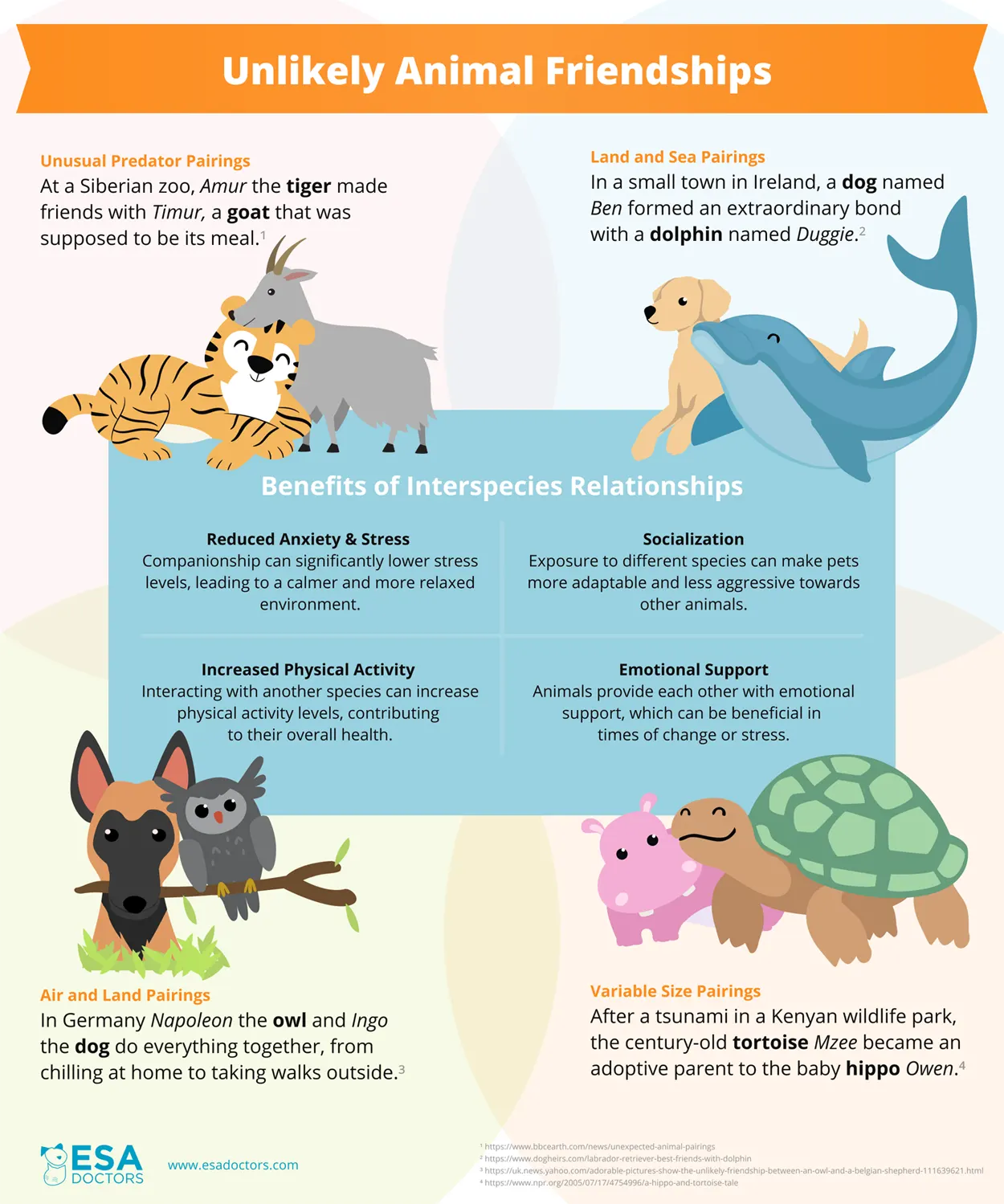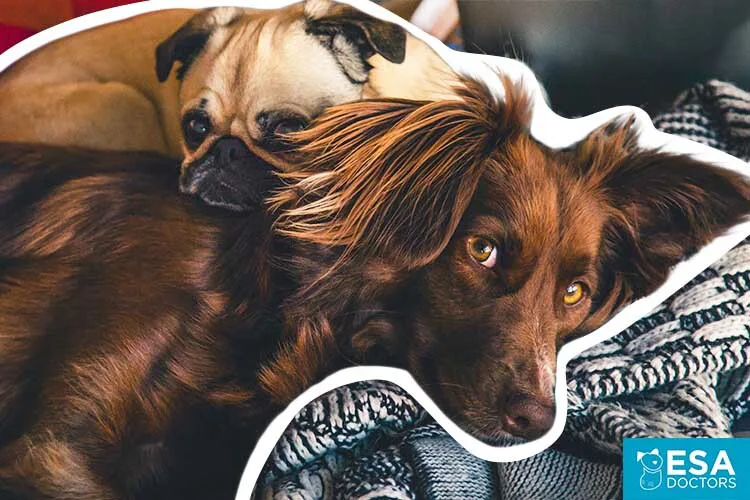We all know that pets and emotional support animals provide love and care for humans. However, meaningful friendships have also been known to form between some unlikely animals.
These partnerships, ranging from the wild savannas of Africa to the comfort of our homes, exhibit how animals can provide support to each other. In this article we’ll explore some heartwarming examples of interspecies relationships.
- Unusual Predator Pairings
- Land and Sea Pairings
- Air and Land Pairings
- The Tortoise and the Hippo
- Household Animal Pairings
1. Unusual Predator Pairings
Some animal pairings defy the conventional predator-prey relationship, showcasing nature’s unpredictability. For instance, the unusual friendship between a cheetah and a dog at San Diego Zoo. The cheetah, typically a solitary and nervous big cat, was paired with a support dog. This companionship helped the cheetah remain calm and approachable, significantly improving its quality of life.
In another odd example at a Siberian zoo, something unexpected happened: a tiger made friends with a goat that was supposed to be its meal. Usually, the tiger ate the goats given to it for food, but this time, it chose to become friends with one. They became very close pals.
Some people think that when the goat was put in the tiger’s space, the tiger felt more lonely than hungry. So, instead of eating the goat, the tiger decided to keep it as a friend. It seems the goat was lucky to show up just when the tiger needed a companion!
2. Land and Sea Pairings
Sometimes animal friends can cross the land-sea barrier! In a small town in Ireland, a local Labrador Retriever named “Ben” formed an extraordinary bond with a wild dolphin named “Duggie”. The dog would swim out to meet the dolphin every day, engaging in playful antics. This example showcases cross-species communication and the joy that such interactions can bring.
3. Air and Land Pairings
A pet owl and dog in a German household became an internet sensation due to their unlikely friendship. The owl, typically a solitary and nocturnal bird, formed a special bond with the family dog. The best of friends, Napoleon the owl and Ingo the Belgian Shepherd do everything together – from taking walks outside to just chilling out indoors and having a nap.
In another heartwarming display of friendship, a 45-year-old female Aldabra tortoise became best friends with a male Brant goose. These two unique animals are always together. The goose is very protective, following the tortoise wherever she goes and quacking at anyone who comes too close. Since Brant geese are known to have lifelong mates, it looks like this special bond between the tortoise and the goose is going to last for a long time.
4. The Tortoise and the Hippo
After a devastating tsunami, a century-old tortoise in a Kenyan wildlife park became an adoptive parent to a baby hippo. The pair were inseparable, eating, sleeping, and swimming together. This unusual pairing highlights how animals can provide comfort and companionship in times of stress and loss.
5. Household Animal Pairings
Sometimes, pet owners witness extraordinary friendships between completely different species. For example, a house cat befriending a rabbit, or a dog forming a protective bond with a guinea pig. Many pet owners of course have dogs and cats that get along wonderfully with each other.
These relationships often develop from early exposure and can lead to lifelong companionships. The support they provide each other ranges from warmth during sleep to playing together, showcasing the flexible nature of animal friendships.
The benefits of these interspecies relationships in a household include:
- Reduced Anxiety and Stress: Companionship can significantly lower stress levels in pets, leading to a calmer and more relaxed environment.
- Increased Physical Activity: Playing and interacting with another species can increase the physical activity levels of pets, contributing to their overall health.
- Socialization: Exposure to different species can make pets more adaptable and less aggressive towards other animals.
- Emotional Support: Animals provide each other with emotional support, which is particularly beneficial in times of change or stress, such as moving to a new home or the loss of a family member.






Leave a Comment